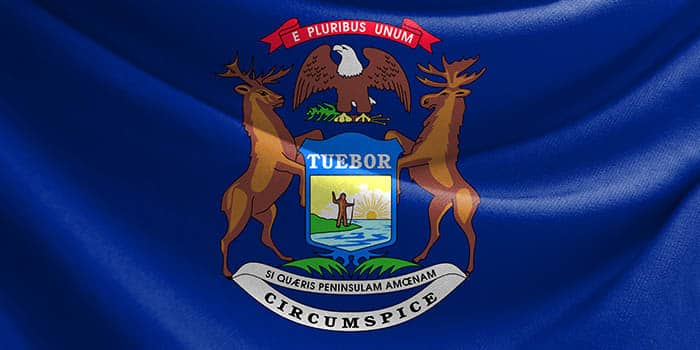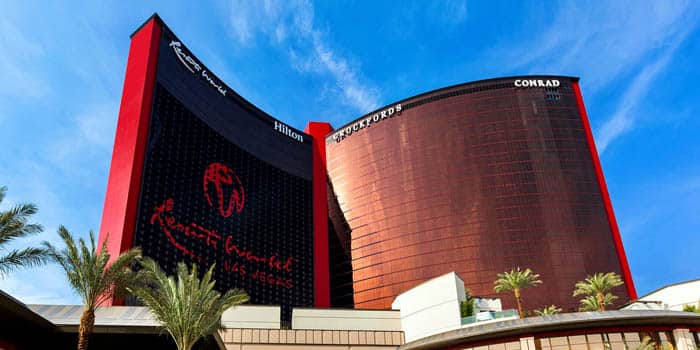- Casino
- By State
- Alabama
- Alaska
- Arizona
- Arkansas
- California
- Colorado
- Connecticut
- Delaware
- Georgia
- Florida
- Hawaii
- Idaho
- Illinois
- Indiana
- Iowa
- Kansas
- Kentucky
- Louisiana
- Maine
- Massachusetts
- Maryland
- Michigan
- Minnesota
- Mississippi
- Missouri
- Montana
- Nebraska
- Nevada
- New Hampshire
- New Jersey
- New Mexico
- New York
- North Carolina
- North Dakota
- Ohio
- Oklahoma
- Oregon
- Pennsylvania
- Rhode Island
- South Carolina
- South Dakota
- Tennessee
- Texas
- Utah
- Vermont
- Virginia
- Washington
- West Virginia
- Wisconsin
- Wyoming
- By State
- Slots
- Poker
- Sports
- Esports
The latest from Africa: Cross-vertical Look at One of Gambling’s Best Bets

As Africa is increasingly moving towards an online gambling ecosystem, we sat down with Kiron Interactive co-CEO and founder Steven Spartinos, BetGames sales director Africa James Everett and Altenar COO & director Dinos Stranomitis. In this piece, we discuss how Africa’s traditionally land-based dominated gaming and betting segment has made a noticeable shift towards the online segment, which is expected to continue thriving as COVID-19 lockdowns are lifted and other financial repercussions are beginning to subside.
Talk us through how Africa and the markets you’re involved in have developed since the start of 2020 – how has the last two years’ developments shaped playing habits and the continent’s online growth?
Dinos Stranomitis: Africa is unique, in the instance that the region has historically preferred a physical POS option where the bettor can withdraw their winnings in person, due the pandemic this had to change for everyone’s safety.
Here at Altenar people are at the forefront of what we do and why we do it. Our innovation in sports betting software and technology is to make the experience fun, easy and smooth for operators and bettors. Africa offered a bespoke situation that called for our technology to adapt to their needs throughout the pandemic.
One key aspect of this was creating a mobile-lite version of our software because Africa’s data consumption often vastly out prices neighboring regions like Europe for instance. So, Altenar needed to adapt its software to suit these needs, which grew in importance during the pandemic to keep people excited, hopeful, and generally, offer them a piece of the normality they had known pre-covid.
I believe Altenar’s software achieved this for many people whilst developing for what was to come, like the greater adoption of Esports and virtual gaming that the pandemic spearheaded and greatly propelled.
Steven Spartinos: Africa, like many regions globally, has enormous affection for football and it remains the most popular sport across the continent. It’s quite common to see groups of people standing outside a shop glued to one screen watching games. Despite this and the general predilection for retail betting, there has been a massive shift towards online play in Africa thanks in the main to the closure of retail outlets during the various lockdowns as well as the general improvement in online infrastructures and payment options across the continent.
This leveling-up in technical capabilities has presented more opportunities for operators and suppliers and has been quite phenomenal to witness in such a relatively short space of time. Betting markets are now available 24/7 in most territories and the development continues apace.
James Everett: The onset of covid in South Africa in early 2020 had a profound impact on the retail market due to strict measures imposed by government on the retail sector in general. However, this sector has recently bounced back to previous levels of revenue generation. In the last 18 months, we’ve seen the online market has grown immensely- partly due to the launch of casino products and slots, with the latter seeming to be the next significant product for the South African market.
The internet infrastructure in Africa has had its challenges and limitations, but the continent is experiencing online growth which has made Africa home to one of the fasters growing telecommunications market in the world. This has played a big role in the increasing demand for online products, Forbes’ data from 2020/2021 states that 30% of the African population takes part or has taken part in online gambling and this figure is growing steadily.
In line with this, BetGames has some exciting launches planned for Q3 this year, and we’re confident our product pipeline will provide solutions to the challenges mentioned above, whilst taking advantage of the increasing demand for online gambling.
The majority of key markets across the continent have always had a strong tradition for retail – how much has this changed during the lockdowns and do you see the majority of jurisdictions returning to the same position as they were pre-COVID?
Dinos Stranomitis: There is some return to a similar position, however, for the most part where online gambling is legal, the desire to return to in-land gambling hasn’t returned to its pre-covid numbers. With a greater call for Esports, that don’t rely on access to live events, stadiums and the like, many in-land gamblers have found online is not only easier but preferred.
That tradition for retail is still embedded in online gambling, iGaming, Sports Betting and so on, it’s just in a different form. For instance, many people would never have seen online shopping taking off to the point it has today, however, many people prefer to shop in the comfort of their homes now and this seems to be the scale and direction gambling is taking on post-pandemic.
Steven Spartinos: During the various lockdowns, retail saw an inevitable decline. However, Africa has always had a strong preference for bricks and mortar operations and as day-to-day life has normalised, we have seen online play plateau and retail return to its pre-covid state.
Retail players are traditional in their betting style and habits and enjoy the tangible aspect of the physical shops and the socialising that is prevalent there. While habits have returned to normal, the exposure to online play has served as a perfect introduction to what else there is available and should stand the industry in good stead as mobile gaming continues to grow.
James Everett: With the telecommunications infrastructure continuously developing, there has been an increase in demand for online products. Therefore, users will always resonate with the online sector.
Retail remains to be extremely significant and attracts a lot of players, mainly due to its security and the lack of trust most players have. Due to this, players want to see brick and mortar and prefer to collect winnings physically as they don’t necessarily trust they will be paid out online. For new investors that are coming from abroad, my advice would be to consider the strength of retail offerings and neglect it due to the surge in demand for online products. Yes, starting in retail will be more costly -but the benefits of doing so far outweigh the negatives.
With the likes of virtuals and lottery – how does this now fit into the sports betting mix? Will live sport always prove to be the key tool for acquisition or are we now seeing other offerings proving to be a standalone attraction in its own right?
Dinos Stranomitis: Lottery, for some countries, is very popular and often lotteries can own numerous sports betting operations, casino or other verticals within a country per the laws of the region. However, sports betting is vastly popular around the world, in our recent reports that can be requested via Altenar’s website, we found that sports betting is the number one vertical around the world both in popularity and revenue intake.
This might be challenged by virtual betting; however, virtual betting often stems from sports betting, it follows the same principle features minus the requirement for in-person events taking place. Altenar foresaw this increase during the pandemic and has recently joined with Oddin to offer virtual betting to our sportsbook.
We’re currently in a new wave and it’s an exciting time to be a part of the industry as we see a greater need for virtual gaming that is having its moment in the sun… potentially for a very long time much akin to sports betting, which is what makes Virtual perfect for Altenar.
Steven Spartinos: The impact that covid has had on player behavior has resulted in a shift towards lottery and virtual products amongst sports bettors. The temporary hiatus in live sporting events opened a window for virtual sports, exposing the traditional punter to this new experience and has allowed it to continue to grow as a vertical.
The perception of third-party style games is changing, and their acceptance is growing, which has highlighted the importance of having a diverse portfolio – this is now key for operators and suppliers in targeting a more demanding African audience. New, innovative content is gaining traction in the market, with the likes of casino games growing in popularity across the broader African clientele.
James Everett: We’ve noticed an increase in demand for virtual. This is partly down to the low data requirements and faster gameplay. Although, revenue generated in Africa is still dominated by sports betting and live sports which amounts to approximately 70-80% of the total turnover.
BetGames is in a unique position where we can provide a Graphical UI mode for our games, providing a data light option for players, this has been a major contributor to the growth we’ve experienced in Africa. Our Lotto products continue to be a sought-after premium game offering and we will no doubt continue to see more growth going forward.
How fast is the tech environment changing in Africa when it comes to connectivity, streaming, and the adoption of XX generation smartphones? How dominant do you see mobile being over retail in the coming years?
Dinos Stranomitis: Very dominant, the need for smartphones or mobile apps is growing in Africa and with greater internet penetration in the region, it can spell further adoption of sports betting better data connections, and potentially further that shift to online which can already be seen in the region post-pandemic.
We hope to have played a part in bridging this tech gap and growing the tech environment through our lite version software, because access to technology really can broaden avenues far exceeding sports betting, like education and connectivity to family and friends.
Steven Spartinos: The tech environment in Africa is evolving at a rapid rate, from network infrastructure to more data-friendly user options. The introduction of 5G has also allowed for much greater development and scope for suppliers and operators, providing bettors with more options in terms of vertical and betting markets.
With the steady incline in online and mobile, it’s only a matter of time until Africa falls in line with the rest of the world where we see mobile play as the dominant platform. It’s going to prove invaluable to all industry stakeholders and with access to cheaper mobile devices and broadband improving all the time it is only going to continue to be more accessible to more people. General internet use in Africa is steadily on the increase, especially via mobile with Android proving to be the most popular OS.
James Everett: In the African market, mobile is by far the most prominent device being used for online gambling. With data costs starting to get lower and the speed of mobile enhancing due to the introduction of 4G and 5G infrastructure, the transition to mobile betting will continue to be a major component.
These changes will be a major factor when it comes to onboarding retail players to online sports and casino betting, although retail will still retain some players due to the security it provides to players.
Looking to key markets – where do you see the strongest growth opportunities in the coming years? Will South Africa and Nigeria always remain king?
Dinos Stranomitis: There is potential for growth all over Africa, especially as more and more countries are looking to add sports betting or forms of online gambling to their region.
For now, South Africa and Nigeria will see the greatest growth purely because of the foundations for iGaming that already exist, however, we predict a great adoption of online gambling throughout Africa given the success that can be achieved in the region.
Steven Spartinos: There is so much opportunity in Africa with more countries becoming more regulated and compliant. South Africa and Nigeria are traditionally the strongest markets but as development continues, Kenya is gaining prominence, also enjoying much industry success.
James Everett: South Africa and Nigeria will remain on top for the foreseeable future, and this could be because they are the two most developed economies in Africa. However, the likes of Ghana, Kenya, Zambia, and Mozambique are fast-growing and emerging markets, they will continue growing and will eventually have a large collection of committed players. These markets represent an opportunistic chance for newcomers that wish to take advantage of a developing region.
Looking to Uganda, Tanzania, and Kenya – how much energy and resources are you devoting to these markets? How do you see present market conditions there as the regulatory environment continues to develop? Are there any other jurisdictions that could prove to be a dark horse?
Dinos Stranomitis: We’re devoting a lot of energy and resources as we’re looking to expand here and further what Altenar’s software can do for the region. In terms of regulation, Altenar is uniquely adapted to understanding that this is the scope of law and legislation around online gambling. For good reason, it’s always best to protect bettors and operators by knowing that gambling is legal and regulated as this can often change what Altenar needs to achieve for the region.
Something that we always look forward to, is the problem-solving aspect, something that could propel the regulatory environment in the region by growing a host of local connections for the market to run harmoniously. Something we at Altenar look forward to and the potential for new emerging markets like Equatorial Guinea.
Steven Spartinos: Wherever legislation has been brought in to regulate gambling we’ve seen state budgets benefit massively and this isn’t unnoticed in neighboring regions with many countries learning from the examples set by others.
Tanzania in particular has implemented a compliance platform – GREMS – which is an electronic regulatory tool that monitors and provides assurance on revenue generation from all gaming activities. It’s something we expect to continue pretty much across the board as each country recognizes the advantages of operating a robust and workable regulated market.
The future is very bright in Africa and provided development is maintained with the right balance of player protection and flexible operating environments it is only going to improve. Luckily for us at Kiron, it’s our backyard and as the various different jurisdictions develop, we’ll be there to provide solutions to them.
James Everett: All three regions have significantly developed gambling sectors, but as with most jurisdictions, they also have regulatory challenges.
Kenya taxes states and payouts, which creates an additional cost to platforms and third-party providers. Limiting the marketing of gambling products in Kenya is probably a regulation that has good intentions for the vast population, but of course, presents a challenge to new entrants to the market. Meanwhile, Tanzania and Uganda both have similar challenges, with taxes being held or imposed on betting, presenting a hurdle to third-party providers.
With that said, all three markets are extremely significant for the gambling market in Africa. They will continue being key areas going forward. As for potential dark horses, Mozambique, Ethiopia, Ghana, and Zambia are areas that people should keep an eye on, these are fast-growing markets that could become important jurisdictions very quickly.
Related Topics:
Although Fiona doesn't have a long-spanning background within the gambling industry, she is an incredibly skilled journalist who has built a strong interest in the constantly growing iGaming network. The team at Gambling News is glad to have her on our roster to help deliver the best stories as soon as they hit. Aside from writing, she loves to dabble in online casino games such as slots and roulette, both for her own enjoyment and also as research to better improve her understanding of the industry.
More Articles



Sports
July 3, 2025
Missouri Sports Betting Open for Public Debate

Business
July 2, 2025
Rootz Rebrands to Wildz Group, Targets Growth















